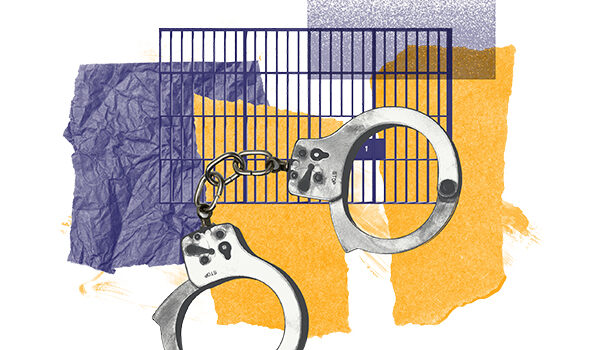The U.S. District Court for the District of Maine has approved the final settlement of a class action suit against the State of Maine, under which the State agreed to return the unemployment benefits it seized from 54 incarcerated workers at the onset of the COVID-19 pandemic. The court’s order found that the settlement between the parties is “fair, reasonable, and adequate,” providing both “significant monetary relief” and “important prospective, non-monetary relief” to the class.
Under the terms of the final agreement approved by the court, workers should see a return of their money by September 14.
“We are excited that our clients will finally see the return of their funds,” said Carol Garvan, legal director at the ACLU of Maine and lead counsel in the case. “These unemployment benefits will help people who are returning home from prison gain a measure of stability, enabling them to care for their children, pay their medical bills, and be a full part of their communities.”
The court-approved settlement returns the unemployment benefits the State seized from the workers’ prison accounts. The settlement also recognizes that money in incarcerated individuals’ prison accounts is their property — meaning that the State can’t seize money from these accounts without due process.
“Upholding the due process rights of incarcerated workers benefits all of us,” said David Webbert, managing partner at Johnson & Webbert, who serves as co-counsel in the lawsuit. “The return of his unemployment benefits helped lead Plaintiff Marc Sparks complete his restitution payments and end his probation earlier. And he now has some money toward buying a car to drive to work.”
A copy of the court’s order is attached.
Background
Lead plaintiff Marc Sparks worked 40-50 hours a week as a grill cook at a local Applebee’s while he was incarcerated and he continues working in that job now that he is back in the community. The work release program he was part of helped incarcerated people, who are near the end of their sentence, make a successful transition back to their communities. Sparks and other class members were saving up the wages they earned so they could afford stable housing, food, and other necessities upon their upcoming release. They also depended on their wages to support their families and children, many of whom are below the poverty line.
In March 2020, Mr. Sparks and the other incarcerated workers were told they could no longer work in the community due to COVID-19. The Maine Department of Labor found the workers eligible for the special COVID-19 unemployment benefits and began making weekly cash payments into their prison accounts after making deductions for room and board, child support, restitution, and other debt payments. Like millions of American workers who found themselves suddenly unemployed at the onset of the pandemic, the class members relied on these unemployment benefits to care for their families and meet their basic needs.
But then about six weeks later, without giving notice or an opportunity to challenge the decision, the State removed the workers’ unemployment benefits from their prison accounts. With the settlement now final, workers will see a return of their property within weeks.
Related Content

Sparks v. Mills

State Agrees to Return Unemployment Benefits Seized from Incarcerated Workers
Stay Informed
Sign up to be the first to hear about how to take action.
By completing this form, I agree to receive occasional emails per the terms of the ACLU’s privacy statement.
By completing this form, I agree to receive occasional emails per the terms of the ACLU’s privacy statement.

